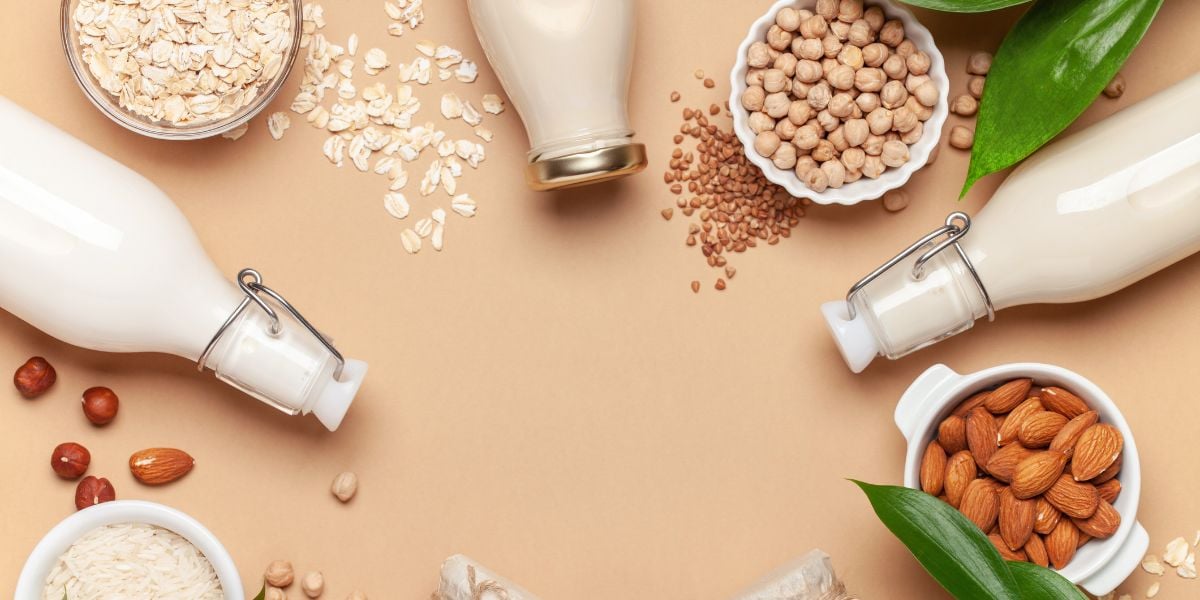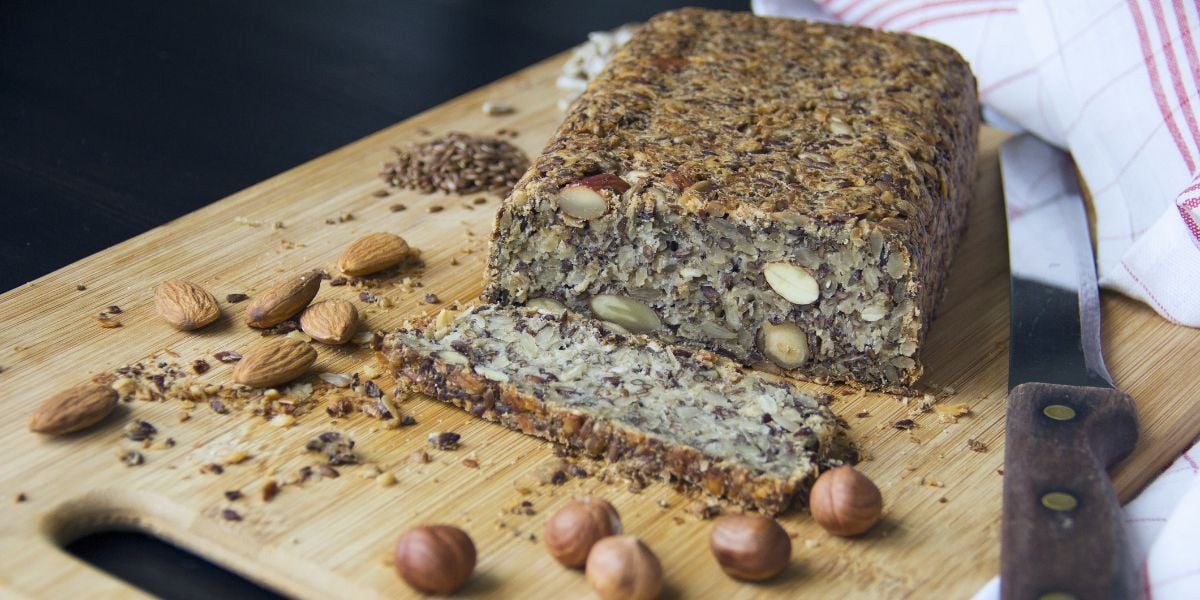Diary alternatives may use one or a number of plant sources to recreate the taste and texture of dairy products.
Plant sources may include soya, almonds, coconut, cashews and more. Generally speaking, dairy free foods also tend to be lower in calories.
Fat and carbohydrate content can vary from one product to another and bear in mind that most dairy free foods tend to be more expensive than their dairy counterparts.
See also our page on dairy free milk alternatives
Lactose free dairy
Lacto free dairy products tends to be made from cows’ milk but are prepared in a way that reduces the lactose content to trace amounts which should be tolerated by most people with lactose intolerance.
Lactose free products may be created by using the enzyme lactase to break down lactose in the milk into digestible forms. For lactose free cheese, the bacteria used to make cheese breaks feeds off the lactose until trace quantities of lactose remains.
Brands to look out for: Lactofree , which produces lactose free milk, cheese, yoghurt and ice cream.
What to consider when buying dairy free
If you are casein intolerant, you may need to check that some products do not contain milk protein as this will include casein.
A number of dairy free products are relatively low carb but in some cases, particularly in the case of dairy free ice cream, the carbohydrate content may be higher than expected.
Price is another consideration. In general, dairy free food do tend to be more expensive than dairy versions.
Cheese
You can expect non-dairy cheese alternatives to have a higher carbohydrate content than dairy cheese.
Most dairy cheeses usually have close to zero carbohydrate whereas non-dairy cheeses typically have at least around 5g of carbohydrate per 100g serving and sometimes more.
The good news is that non-dairy cheeses tend to have less fat and significantly less calories than dairy cheese.
Brands to look out for:
Vegusto – No Moo cheeses
This Swiss company makes a range of vegan cheeses in their ‘No Moo’ range that are dairy free, gluten free, egg free and soya free. Their Mild Aromatic Cheese alternative picked up the Best of Show Overall award at the 2012 Free-From Food Awards.
Whilst No Moo cheeses score well in the taste test, they have more carbohydrate than other dairy free cheeses, with some of their cheeses having 25g of carbohydrate per 100g serving.
Bute Islands Foods – Sheese
Based on the Isle of Bute, Scotland, this company makes dairy-free, egg-free and gluten-free cheeses. Sheese may have around 5g of carbohydrate per 100g serving.
Redwood Wholefood Co – Cheezly
Cheezly is made from tofu and rice starch as well as other ingredients and may contain around 5g of carbs per 100g which can vary from cheese to cheese. As well as being dairy free and suitable for vegans.
Yoghurt
Dairy free yoghurts tend to be relatively low in carbohydrate, fat and calories. The dairy free products we looked at were made from either soya or coconut lower in calories and carbs compared with a typical low fat Greek yoghurt
Brands to look out for:
Alpro – Simply Plain and Provamel – Soya Yofu
These products from Alpro and Provamel are both made from soya and are low in carbohydrate, calories and also relatively low in fat
CoYo – Natural coconut milk yoghurt
CoYo’s coconut milk yoghurt provides an alternative to soya for those that may want a different taste or would prefer to avoid or have less soy intake. CoYo’s yoghurt is low in carbohydrate and calories but does have more fat than soya based yoghurts.
This may not be viewed as a problem for people who are not actively limiting their fat intake, such as those following a paleo diet
Ice cream
Dairy free ice cream is not so hard to find but a lower carb ice cream that is also dairy free presents more of a challenge. The dairy free ice creams we found tended to be higher in both carbohydrate and calories than dairy versions.
Bessant and Drury – Dairy free ice cream
Bessant and Drury have a range of dairy free yoghurts made from coconut milk that picked up the Innovation award at the 2012 FreeFrom Food Awards.
Those of us with diabetes need to be aware that the ice cream has around 30g of carbohydrate per 100g serving which is about 50% higher in carbs than luxury dairy ice creams.
Swedish Glace
Swedish Glace ice cream is based on soya and picked up the Best Vegan Dairy Product Award at Vegfest 2011.
Swedish Glace ice cream has a higher carb content than luxury dairy ice cream, but at 25g of carbohydrate per 100g serving it is lower than Bessant and Drury’s.
Booja-Booja – Stuff in a Tub
Booja-Booja yoghurt was the lowest carb dairy free ice cream we found. At around 20g of carbs per 100g it is comparable with the carbohydrate content of some luxury dairy ice creams. The lower carbohydrate content is partly down to its use of agave syrup for its sweetness and cashew nuts for texture.
Agave syrup has a lower glycaemic index and glycaemic load than sugar so has benefits over sugar based ice creams for people with diabetes.
Tasty note: cashew nuts are ground finely enough to the point whereby you wouldn’t know there was cashew in the ice cream from looking at it.






